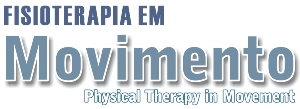Abtract
Introduction:
Obesity compromises the quality of life. However, few studies have investigated the influence of different anthropometric indicators on the quality of life of this population.
Objective:
We aimed to correlate the physical and mental components of quality of life and verify its association with different anthropometric indicators in adults with obesity.
Methods:
A cross-sectional study was conducted in adults with obesity [body mass index (BMI) ≥ 30 kg/m²]. The quality of life was investigated using the SF-36 questionnaire, with scores ranging from 0 (worst-case scenario) to 100 (best scenario for the outcome). The anthropometric indicators used were BMI, waist circumference, waist/height ratio (WHR), and lean and fat body mass. For analysis, Spearman’s correlation and crude and adjusted linear regression for sociodemographic variables were used.
Results:
A total of 75 subjects (nfemales = 47; µage= 34.8 ± 7.1 years) were included, and their means of the physical and mental components were 64.5 ± 15.9 and 50.8 ± 21.3 points, respectively. The social functioning domain presented a strong positive correlation (r = 0.760) with the mental health domain, and eight moderate correlations (0.400 ≤ r ≥ 0.699) were found between the different domains of the questionnaire. The functional capacity domain and the physical component presented a moderate negative correlation with the WHR (r = -0.402 and r = -0.407, respectively). After adjustment, the WHR was inversely associated with the physical component (β = -1.197; p = 0.002).
Conclusion:
In adults with obesity, important correlations were observed between the physical and mental components of quality of life, and the waist/height ratio was the only anthropometric indicator correlated and associated with the physical component of the outcome.
Keywords:
Abdominal fat; Body fat distribution; Cross-sectional studies; Mental health
